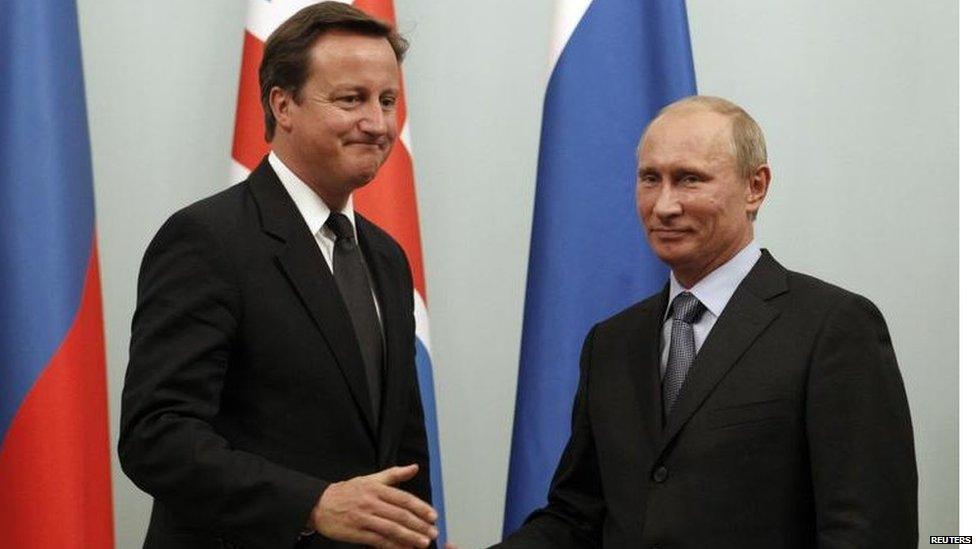Gaping holes in UK's handling of threat from Russia
- Published

David Cameron met Vladimir Putin in Moscow in September 2011
If you do not seek, you do not find.
Whether deliberate or deficient, the Intelligence and Security Committee's very long-awaited report outlines gaping holes in the UK's handling of the threat from Russia.
For years, it seems a lack of priority, and a lack of curiosity, allowed the risks to go unmonitored, if not unchecked.
The UK government has now stiffened its attitude to Vladimir Putin's Russia.
But it's been an uncomfortable evolution for Tory politicians. It's not just that party money men needed finance - receiving breath-taking donations from Russians who moved here, and became UK citizens over the years.
But for a long time in Westminster there was also an optimism that despite Russia's many problems, Mr Putin was a reformer, that there was scope and desire to reset the relationship, despite the many tensions.
Back in 2000, not long after Mr Putin's election, Tony Blair invited him to the UK, hailing him at a press conference as a leader who "talks our language of reform".
David Cameron flew to Moscow in 2011 to try to call for cooperation. Boris Johnson, when foreign secretary, repeated the trip: trying, and then failing, to reset the relationship - something that he now describes as a mistake.
We can't yet know what kind of change this report will prompt.
The government has no desire to unpick what Russia might have tried to do during the EU referendum.
But its political opponents are unlikely to rapidly give up their demand for the intelligence services to find out what did happen.
Given their activities in other campaigns, it seems highly unlikely that there was no attempt at meddling. As we talked about last week, there is evidence that some Kremlin-friendly media circulated anti-EU sentiment.
And calls to get to the bottom of what happened are likely to intensify, even though the government shows no intention whatsoever of doing so.
If attempts at meddling were proven, the precise consequence of those efforts could then be hard to prove.
More broadly, however, the report is an important punctuation in political attitudes to Russia here.
In an echo of the UK's evolving attitude to China, the ambition of successive governments was to be disappointed by a continued, more brazen hostility.
Perhaps the UK's political aspiration for a better relationship dulled the radar for malign behaviour.
Neither Russia, and certainly not China, can be ignored.
But many UK politicians held what seem now terribly misplaced hopes that old enemies could become new friends.
